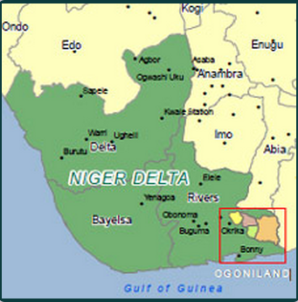
1. Factual background
The land tenure and access to resources have always been the source of numerous conflicts, often violent, in the Niger Delta.
The colonial administration did not alter the traditional communal ownership of land in southern Nigeria, but gave the government the ownership over natural resources.
“However, as far back of 1914, legislations had been in place defining who has claims to mineral resources. For instance, the Colonial Minerals Oil Ordinance of 1914, amended in 1916, 1925, 1945, and 1959, vested ownership and control of mineral resources in the British Crown. Section 3 of this Act states that “The entire property in and control of all minerals in, under or upon any land in Nigeria, and of rivers, streams, and water that coursed throughout Nigeria, is and shall be vested in the crown [state], save in so far as such rights may in any case have been limited by any express grant made before the commencement of this Act.”
Click here for the factsheet (12 pages): FS_041_Shell case Nigeria

The project ENVJUSTICE has received funding from the European Research Council (ERC) under the European Union’s Horizon 2020 research and innovation programme (grant agreement No. 695446)